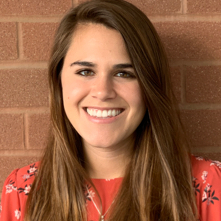Being a Health at Every Size © or HAES dietitian, I am confronted with a ton of questions about this approach. It’s really difficult for us to wrap our minds around a weight inclusive approach to health because we live in a weight centric and fat phobic world. I’d like to take some time to clear up a few common HAES myths!
If you’re a clinician I hope this information is helpful in your practice. If you’re a client, I hope this blog can bring some new conversations with your therapist or dietitian. Keep reading for 5 Health at Every Size Myths.
1. HAES is a New Movement
Since intuitive eating and HAES have recently grabbed tons of attention, people believe HAES is a new concept. However, the concept of weight inclusivity has been around for years! There is so much information about the early research into Health at Every Size that it would be difficult for me to explore it here. But, I would encourage you to check out the Association of Size Diversity and Health’s website. There are tons of awesome information about HAES there. I also think it’s super important to recognize and understand that how we see HAES today wouldn’t have been possible without fat people and people of color doing this work and advocating for change.
2. It’s HEALTH at Every Size. Not HEALTHY at Every size
Adding Y to health completely changes the meaning of HAES. Health at Every Size doesn’t promise that everyone will be healthy. And it doesn’t promise that any one person can be “healthy” at any size. As Vincci Tsui said “HAES is really about the ability if anyone to pursue health (If that is what they want), not a commentary on a person’s health status.” This means even if a person is considered “not healthy” according to the society, they can still pursue health in whatever way is best for them. And also remembering that health is NOT a moral obligation. We, as health professionals, can support our clients in making behavior changes that feel good to them, without promoting weight loss practices.
3.HAES is Anti-Science and Anti-Health
Many people in academia and the medical field believe that HAES is based more on opinion than research. Therefore, discrediting HAES as a viable option for treatment. However, research DOES support the Health at Every Size philosophy, including but not limited to, research about negative effects of weight stigma and weight cycling and papers supporting a weight inclusive approach.
Some of my favorites are The Weight Inclusive vs. Weight Normative Approach to Health and Weight Science: Evaluating the Evidence for a Paradigm Shift.
The research is much more complicated than I can get into in this one blog (maybe sometime in the future!), but I do want to explain the very basic gist of the research. #1 we have to remember that correlation does not mean causation. It’s true that the research states there is a correlation between higher body weights and negative health outcomes. HOWEVER, research also says that weight stigma and weight cycling contribute to those SAME negative health outcomes. We tend to blame these health outcomes on weight alone, but what if weight stigma and weight cycling are even bigger contributing factors?
And that doesn’t even get into talking about how income and food deserts and genetics play a role in health outcomes. If you are interested in the research, I’d start with the 2 articles listed above!
Lastly, the H is HAES stand for health. HAES just looks at health in a different way. Aka not using weight as a marker. So, no, HAES is not anti-health
4. HAES providers judge those who want to lose weight
As a HAES provider, this one breaks my heart a little bit. HAES providers completely understand why someone would want to lose weight or change their body. And we approach these conversations with compassion, curiosity and understanding. Our system is drenched in diet culture and fat phobia. We get messages all the time that weight loss is the answer to our problems. So of course someone is going to want to change their body and/or avoid weigh gain!! After all, the diet industry is a 70-billion-dollar industry. It thrives off of making people feel badly about their bodies to keep the business going.
5. There is a point where someone can become “too fat” and HAES does not apply
Weight inclusivity and HAES apply to everyone and any size. We can still advocate for health without promoting weight loss. By having conversations about what health means to our clients, and by reframing diet culture beliefs about “health,” we can work with our clients in achieving whatever version of health works best for them. It’s important to remember that weight loss is not sustainable. Even if weight loss was the answer to living a healthy life (spoiler, it’s not), only 2-5% of people (in some studies 20%) are able to keep the lost weight off long term (5+ years). The FDA would absolutely not recommend a drug with a 20% or less efficacy rate.
When it comes down to it, a HAES approach works to take weight out of the equation when discussing health behaviors. It does not promise weight loss. And it works to address fat phobia while working one on one with clients. For those amazing, brave and wonderful HAES advocates, it also works to dismantle fat phobia in a societal sense.
Get Support from a HAES Dietitian
If you’re looking for a Health at Every Size dietitian who can support you in finding peace with food and body, contact us today! We are accepting new clients and would love to work with you along you eating disorder recovery journey. We provide services in College Park and Columbia, Maryland, Virginia, and Pennsylvania.
Courage to Nourish is a group of eating disorder specialized dietitians. We have in person locations in Alexandria, Virginia, Columbia, Maryland. and College Park, Maryland. We offer virtual services across the state of Virginia, Washington DC, Pennsylvania, and Colorado. We offer individual nutrition therapy. As well as support groups. We would love to guide you in building a better relationship with food.
Contact us for more information. And to schedule a discovery call. Also, sign up for our client or clinician newsletter!
Take one of our eating disorder quizzes:
- Binge Eating Disorder Quiz
- Anorexia Quiz
- Bulimia Quiz
- ARFID Quiz
- Body Image Quiz
- Disordered Eating Quiz
- Chronic Dieting Quiz
- PCOS Quiz
- Orthorexia Quiz
- Compulsive Exercise Quiz
- RED-S Quiz

Helping my clients cultivate meaningful connections and interests outside of their eating disorder is a true passion of mine. I like to think my clients and I are on a team to navigate recovery. I love working with high school and college students as well as athletes seeking to have a better relationship with exercise. I am a proud anti-diet dietitian and work with my clients through a Health At Every Size © and intuitive eating framework.


